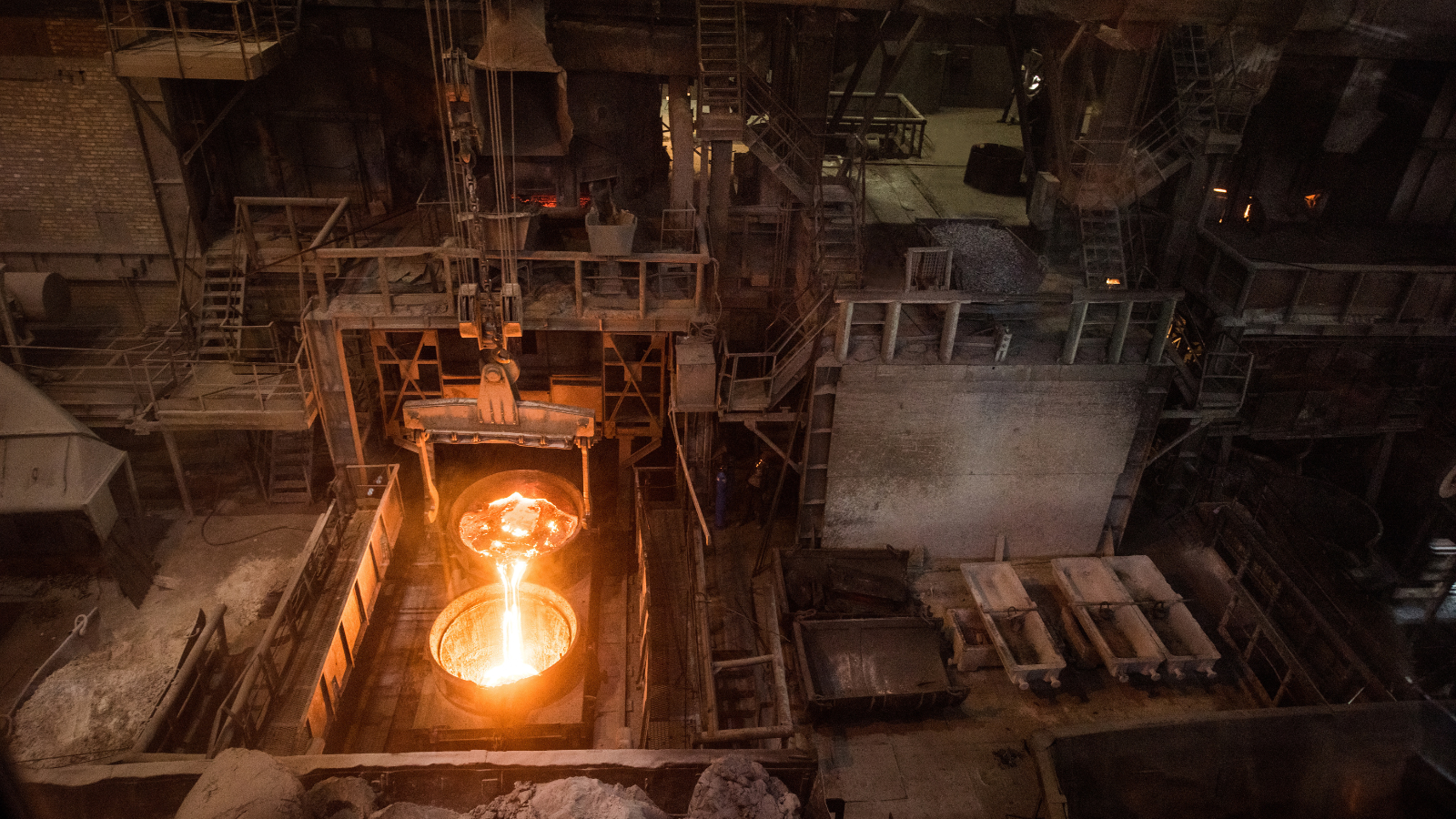Shandong Humon Smelting Co., Ltd., a publicly-traded metals company, has conducted business with a sanctioned Russian entity and is alleged to have bought smuggled North Korean gold in violation of U.S. and international sanctions. The company, based in China, is held in the exchange-traded funds (ETFs) of U.S. financial institutions and asset management firms.
According to trade data and company websites reviewed by Kharon, over the past year-and-a-half, Shandong Humon Smelting received about $243 million worth of metals, including gold, silver, and copper, from two Russian companies: Polyus Krasnoyarsk JSC and Novo-Shirokinskiy Rudnik AO.
The most recent transactions between Shandong Humon Smelting and Polyus Krasnoyarsk occurred in July 2023, just two months after the Russian entity was sanctioned by the U.S. Department of State for operating in Russia’s metals and mining sector.
While Novo-Shirokinskiy Rudnik has not been sanctioned, its parent company, Highland Gold, was sanctioned by the State Department in December 2023. The latest transactions between Shandong Humon Smelting and Novo-Shirokinsky occurred in June 2023.
Shandong Humon Smelting is traded on the Shenzhen Stock Exchange while its parent company, Jiangxi Copper Co., Ltd. (with a market cap of RMB 76.01B), is listed on the Shanghai Stock Exchange.
U.S. investment firms hold millions of dollars worth of securities in Shandong Humon Smelting and Jiangxi Copper in emerging market equity and debt funds, according to corporate disclosures and securities data reviewed by Kharon.
Furthermore, gold from Shandong Humon Smelting is listed in Securities and Exchange Commission (SEC) Conflict Minerals Reports, which require U.S. publicly traded companies to annually disclose their metals supply chains in order to reduce the use of conflict minerals from the Democratic Republic of Congo (DRC) or an adjoining
country.
These minerals, which include tin, tungsten, tantalum and gold, are mined in areas where there are ongoing armed conflicts like the DRC.
Several U.S. technology, energy, and machinery corporations, including a Fortune 100 company, have also reported gold from Shandong Humon Smelting as a part of their supply chains, according to Conflict Minerals Reports filed with the SEC in 2023.
Shandong Humon Smelting has an active corporate presence in Russia. In 2018, the company opened an office in Moscow, which is responsible for “procurement and trading strategies,” according to a Chinese securities disclosure.
This information comes as Western nations continue to target Russia’s metal and mining sector. In April, the U.S. and U.K. governments announced measures to reduce Russia’s ability to generate revenue from exporting metals on global metal exchanges.
In addition to its Russia-related business, Shandong Humon Smelting has been accused of violating U.N. sanctions on North Korea. In 2020, Chinese prosecutors alleged that the company purchased nearly 2,000 tons of North Korean gold powder from smugglers in two separate instances in 2019, according to court documents charging the smugglers.
Gold originating from North Korea is prohibited from import under U.N. Security Council resolutions.
According to trade data and company websites reviewed by Kharon, over the past year-and-a-half, Shandong Humon Smelting received about $243 million worth of metals, including gold, silver, and copper, from two Russian companies: Polyus Krasnoyarsk JSC and Novo-Shirokinskiy Rudnik AO.
The most recent transactions between Shandong Humon Smelting and Polyus Krasnoyarsk occurred in July 2023, just two months after the Russian entity was sanctioned by the U.S. Department of State for operating in Russia’s metals and mining sector.
While Novo-Shirokinskiy Rudnik has not been sanctioned, its parent company, Highland Gold, was sanctioned by the State Department in December 2023. The latest transactions between Shandong Humon Smelting and Novo-Shirokinsky occurred in June 2023.
Shandong Humon Smelting is traded on the Shenzhen Stock Exchange while its parent company, Jiangxi Copper Co., Ltd. (with a market cap of RMB 76.01B), is listed on the Shanghai Stock Exchange.
U.S. investment firms hold millions of dollars worth of securities in Shandong Humon Smelting and Jiangxi Copper in emerging market equity and debt funds, according to corporate disclosures and securities data reviewed by Kharon.
Furthermore, gold from Shandong Humon Smelting is listed in Securities and Exchange Commission (SEC) Conflict Minerals Reports, which require U.S. publicly traded companies to annually disclose their metals supply chains in order to reduce the use of conflict minerals from the Democratic Republic of Congo (DRC) or an adjoining
country.
These minerals, which include tin, tungsten, tantalum and gold, are mined in areas where there are ongoing armed conflicts like the DRC.
Several U.S. technology, energy, and machinery corporations, including a Fortune 100 company, have also reported gold from Shandong Humon Smelting as a part of their supply chains, according to Conflict Minerals Reports filed with the SEC in 2023.
Shandong Humon Smelting has an active corporate presence in Russia. In 2018, the company opened an office in Moscow, which is responsible for “procurement and trading strategies,” according to a Chinese securities disclosure.
This information comes as Western nations continue to target Russia’s metal and mining sector. In April, the U.S. and U.K. governments announced measures to reduce Russia’s ability to generate revenue from exporting metals on global metal exchanges.
In addition to its Russia-related business, Shandong Humon Smelting has been accused of violating U.N. sanctions on North Korea. In 2020, Chinese prosecutors alleged that the company purchased nearly 2,000 tons of North Korean gold powder from smugglers in two separate instances in 2019, according to court documents charging the smugglers.
Gold originating from North Korea is prohibited from import under U.N. Security Council resolutions.







